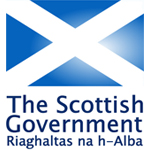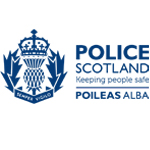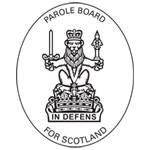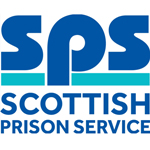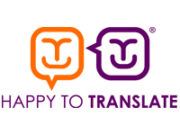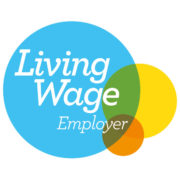Victim Support Scotland voices concerns about Prisoners (Early Release) (Scotland) Bill
Victim Support Scotland has voiced concerns about the Prisoners (Early Release) (Scotland) Bill.
Victim Support Scotland (VSS) has voiced concerns about the Prisoners (Early Release) (Scotland) Bill.
Proposals in the Bill would mean that short term prisoners (serving sentences of 4 years and under) would serve only 40% of their sentence before being considered for release, instead of the current 50%.
Stage 1 of the Bill will be debated on Thursday, and, if passed, it will move to Stage 2 next week and Stage 3 the following week. Again, if passed, prisoners would start being released from February 2025.
Prisoners convicted of domestic abuse and sexual offences would be excluded from release. Justice Secretary Angela Constance said the proposed change would result in the prison population dropping by between 260 and 390.
Unlike previous early release schemes, the Bill does not include the provision of a Governor’s veto, which would act as a crucial safeguard by preventing the release of prisoners deemed to pose an ‘immediate risk’ to individuals or the public.
The Bill also includes new proposals which would which would give powers for Ministers to change the point of release under license conditions for long-term prisoners (serving sentences of 4+ years).
Victim Support Scotland is concerned about this new legislation, and stresses that previous early release schemes have not been successful. They did not provide the intended relief to the prison estate – 12% of prisoners who were released in June and July reoffended and were returned to custody by September.
VSS is calling for the below amendments to the Prisoners (Early Release) (Scotland) Bill, namely:
1. Removal of secondary legislation relating to long term prisoners
The secondary legislation relating to long term prisoners would grant Ministers the power to change the point of release under license conditions for long term prisoners.
The scope of this measure is unclear and requires greater clarification, and we argue that there has been insufficient time to review the impact of these new proposals and allow full scrutiny by Parliament.
As a result, we are calling for the removal of this secondary legislation from the Bill.
2. Inclusion of express duty for information sharing with victims/victim support organisations
If there was an express duty for information sharing included in primary legislation, victim support organisations could be proactive in offering support to victims, removing the onus on them to come forward and seek information about the prisoner in their case.
We have highlighted that only 2% of victims were notified of their perpetrator’s early release in the previous scheme. While plans for much-needed reform of the Victim Notification Scheme (VNS) are thankfully underway, necessary improvements will not be made in time for another round of early prisoner release.
VSS is calling for legislation that enables victim support organisations to proactively notify victims so that they can plan for their own safety and receive support in advance of their perpetrator’s release.
3. Inclusion of Governor’s veto
Unlike the previous emergency early release scheme, the Bill does not contain a provision for a Governor’s veto – VSS campaigned strongly for its inclusion and the veto prevented the release of 171 prisoners who posed an ‘immediate risk’ to individuals or the public.
The Governor’s veto is a crucial safeguarding element, and it is extremely concerning that the Prison Early Release (Scotland) Bill will not contain this vital aspect of risk assessment.
The lack of inclusion of a Governor’s veto will endanger victims and the wider public by allowing those who had been previously vetoed and other dangerous prisoners to be automatically released.
4. Investment in Home Detention Curfew and monitoring technology
Home Detention Curfew (HDC) allows some prisoners to serve part of their sentence in the community, subject to curfew conditions and electronic monitoring.
We call for the introduction of GPS technology to be expedited to better ensure the safety of victims and the wider public when prisoners are released into the community. This will remove the onus currently placed on victims and the wider public to report breaches of license conditions and enable safer management of prisoners subject to HDC. We also call for domestic abuse offenders and sex offenders to be excluded from HDC, as is the case in England and Wales.
Kate Wallace, Chief Executive of Victim Support Scotland, commented:
“While we acknowledge the challenges around the prison population, it is important that any changes do not place the public or victims more at risk. We agree that prison capacity needs to be addressed, but solutions must be realistic, sustainable, and have public safety at their heart – that is the intention behind our proposed amendments.
“Recognising the concerns of victims is not enough – tangible action needs to be made to prove the Scottish Parliament’s commitment to victim safety. We know that any kind of prisoner release programme causes anxiety for victims and can erode the general public’s trust in the justice system. Victims are very clear with us that they want to be confident that the justice system protects them and prevents others from going through what they have experienced.
“Solutions need to be focused on preventing the cycle of reoffending by prioritising evidence-based rehabilitation programmes, effective supervision measures with appropriate resourcing so that offenders can be safely managed in our communities, and a focus on robust risk assessment so that dangerous prisoners, those who pose a risk, are not released.
“We urge the Scottish Government to support our proposed amendments and await further consultation with them on these issues.”

